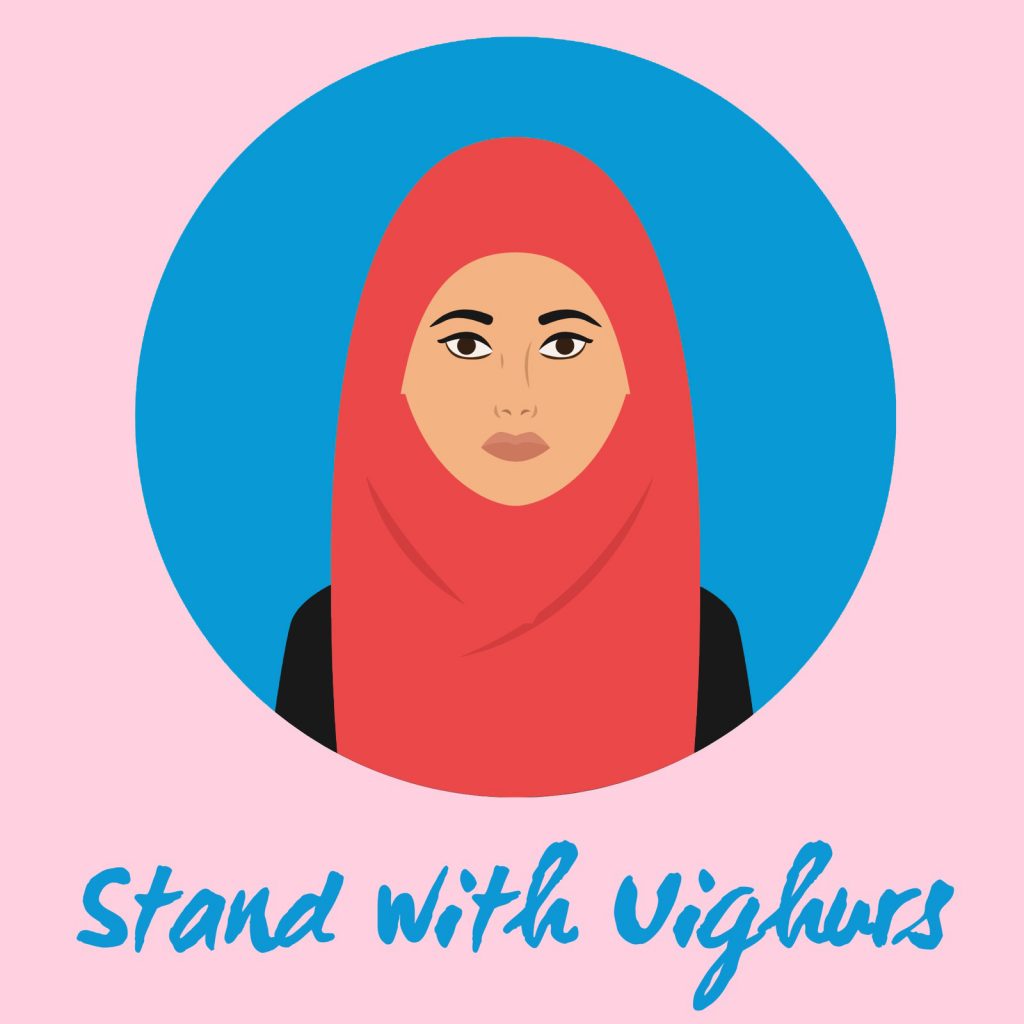
By: ANanya Randeria Credit: The Myriad News
Executive Editor Ananya Randeria shares her opinion on the lack of international response to the Uighur Crisis, and how that can lead to an upcoming genocide of Uighur people.
The Uighur Crisis requires a strong international response
Since early 2017, the Chinese government has been illegally detaining Uighur people, a Muslim minority group in Xinjiang. The government has reportedly detained up to one million Uighurs and other Muslim minorities in what they call “re-education camps”, but in reality, they are modern-day concentration camps. The international community must take an active stance against these crimes, and do more through peaceful means to protect the Uighur people.
By perpetuating a form of collective punishment and subjecting Uighurs to inhumane levels of control, China is breaking international law as those actions are not permitted. Information on what is actually happening in the camps is limited, but many detainees who have fled described harsh conditions.
It is clear that the human rights abuses within these camps are vast and a daily occurrence. Reports stated that many detainees are forced to renounce Islam, are subjected to torture, sleep deprivation, high levels of 24-hour surveillance, and sexual abuse while in the camps.
The Uighur Crisis is on its way to become a genocide
Although not classified as a genocide by the UN yet, this crisis is on its way to becoming one if international intervention is not enacted soon. When assessing potential genocides, historians and human rights activists have used the 10 Stages of Genocide founded by Dr. Gregory Stanton in 1996. The Uighur crisis is currently on step eight, which is the persecution of the minority group.
The situation in China quickly moved past the other stages, with their methods of limiting the religious practice of Islam, limiting movement, using higher levels of surveillance, campaigns to depress the population and preventing Uighur people from receiving economic opportunities, factoring Han Chinese for said opportunities. The Uighur crisis is at stage eight because they are currently persecuting Uighur people for minor criminal charges (if any) with no legal method of getting out, subjecting them to torture and inhumane conditions.
When understanding current human rights crises, it is essential we learn from past genocides to understand what international and local intervention must take place. Although the Holocaust was on a much bigger scale, there are many similarities between the Uighur crisis and the Holocaust.
Similarly to the Uighur crisis, the holocaust started with simple discrimination, creating the perception of “us” and “them” for many of the German citizens. The “re-education” camps are mimicking some conditions of the “ghettos” and concentration camps during the holocaust, with brutal torture and forced labor. The only difference is, mass murder has not been enacted yet, but if we learn from the Holocaust, it is clear that it is entirely possible as the conditions are already in place.
The international community has spoken out against these crimes
Many human rights groups, countries, and international organizations have spoken out against the actions taken by the Chinese government, but it is not enough to shut down the camps. In 2018, the UN human rights chief and other UN officials have demanded access to these camps, and the EU has called on China to respect religious freedom. Additionally, the Human Rights Watch and Amnesty International have urged China to shut down the camps and be more transparent with data and new developments within the camps.
The US in particular has imposed visa restrictions on Chinese officials and has blacklisted around 24 Chinese companies who were linked to the abuse. More recently in June, Trump signed legislation requiring that individuals face sanctions for oppressing Uighurs.
Actions taken have not been enough due to political barriers
Although these actions have been taken, it has not been effective due to the fact that China has a permanent seat on the UN Security Council meaning that they can veto any international action such as sanctions imposed or criminal prosecutions.
The political obstacles to persecuting China are vast, but not impossible if done in a timely manner. The international community has not done enough to overcome these obstacles. The UN should use the Responsibility to Protect because this is a form of ethnic cleansing and should be stopped before it progresses into a mass genocide.
The United States and other superpowers must impose more sanctions, publicly challenge Xi, and deny exports of technology that are facilitating the abuse. They should also press China to allow UN investigators and demand access to data and information about the happenings within the camp. Able countries should also take action to grant asylum to those who have fled.
China is failing to protect its marginalized citizens, and it is now the responsibility of the international community to protect the Uighur people, first through peaceful methods, followed by military action if required.
